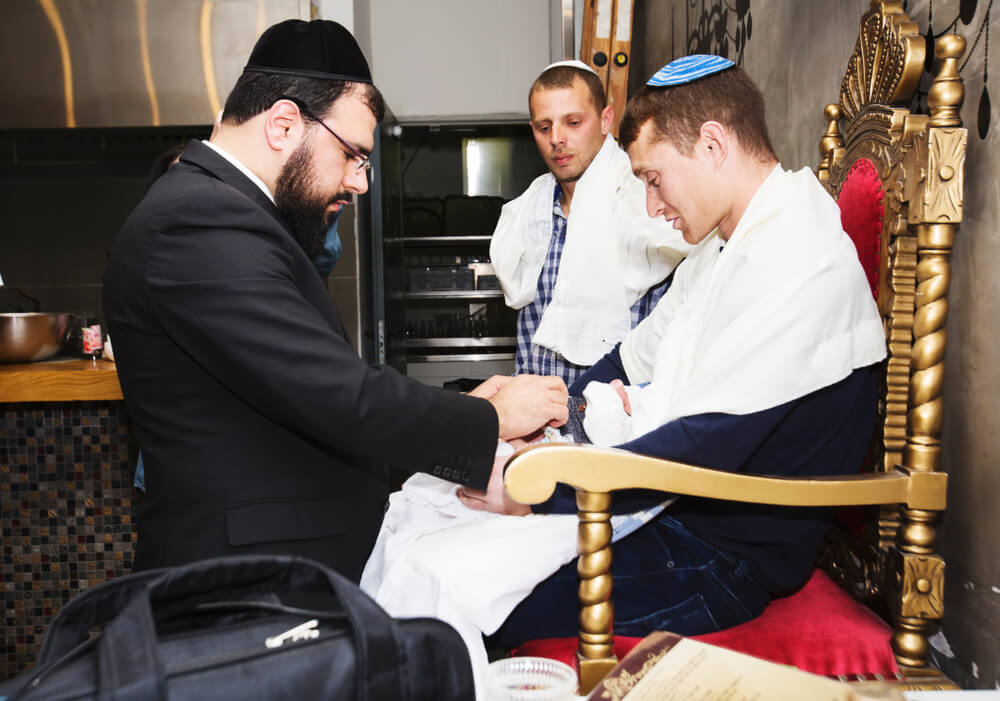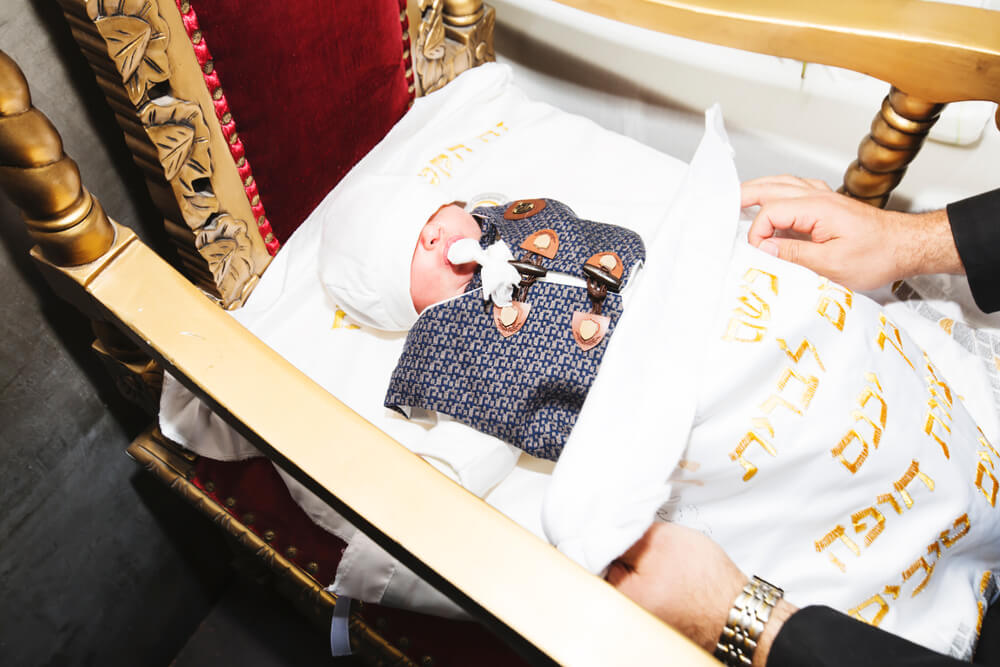Jewish baby boys undergo a circumcision ceremony called the bris. This ceremony is an important part of the baby’s Jewish upbringing. However, many mothers find themselves asking, when is a bris held? Before we dive into how many days after birth is a bris held, we should clarify why a bris is performed in the first place. The word bris stands for circumcision but it also stands for covenant. The ceremony itself represents a covenant between you and God. When a bris performed is determined through religious guidance. Therefore, understanding when is a bris supposed to be scheduled at your local mohel in South Florida is as important a part of your boy’s Jewish upbringing as celebrating his bar mitzvah.
What Is a Bris and Does It Matter When Is It Performed?
Firstly, we need to clarify what a bris is. As previously explained, a bris represents a covenant between ourselves and God. Essentially, it represents a lifelong contract between the baby boy and God. While the bris happens, the mohel recites a prayer that goes, “Blessed are You Who sanctified us with His mitzvot, and instructed us to enter him into the covenant of Abraham our Father.”
Effectively, the bris ceremony, otherwise known as Bris Milah, is similar in practice to symbolically passing on the Jewish religion to the next generation. A bris is very symbolic and holds quite a lot of meaning for this reason. The concept of the bris is to join God’s covenant by removing something unwanted. God chose the male genitalia as it represents bringing down a soul from heaven and creating a new generation. By removing the foreskin, which represents a blockage between the male and God, the baby boy can then have a revelation of holiness. In part, this is why the bris should be performed by a mohel.
Ultimately, the bris became a well-known representation of Judaism. Even in non-practicing Jewish households, many families still continue to have their babies circumcised. It’s thought to be a symbol of Jewish identity.

How Many Days After Birth Is a Bris?
It is important to keep in mind that, in accordance with the Jewish calendar, the Jewish day begins the evening of the previous day. Therefore, determining the exact timing for performing a bris can be somewhat tricky. Additionally, tradition states to hold the bris in the morning, unless it is not possible. Lastly, it is important to remember that you hold your son’s bris on the eighth day, even if that day falls on Shabbat or another Jewish holiday. Therefore, you’ll want to schedule your son’s bris shortly after he is born.
Ultimately, when asking when is a bris performed, you’ll want to determine when, by the Jewish calendar, your son was born. This will answer the question with relative ease. If you have further questions, we advise you to reach out to us for additional information.
When Is a Bris Held If We Have to Reschedule?
In most cases, you should not reschedule your son’s bris. The procedure follows the guidelines set out by both medical professionals and the Jewish faith. However, there are some instances in which you may reschedule a bris for your son. Rescheduling will need to be communicated with your mohel and is done on a case-by-case basis.
Bris rescheduling typically only occurs if there is a health problem with your baby that would make it medically unsafe to have the bris performed. If there are any imminent concerns, your doctor or mohel may request that you reschedule. Keep in mind that if you must reschedule your son’s bris, it cannot happen on Shabbat or any other festival day. Use these guidelines when determining this.
Why Is a Bris Performed Eight Days After Birth?
When trying to understand when a bris is held, remember that there are multiple reasons for choosing this specific day. Why its performed on the eighth day comes with a certain level of significance. Ultimately, it is exceptionally important that, if at all possible, you have it scheduled for the eighth day.
To begin with, determining how many days after birth should a bris be, in part, a medical decision. Most pediatricians have determined that at eight days old, it is safest to perform circumcision. Multiple factors have helped determine this, such as:
- At eight days old, the baby’s immunoglobulin has matured enough to aid in successful clotting.
- The birthing process is considered traumatic for newborns. Performing a surgery such as circumcision immediately after birth can lead to further trauma and even shock.
- The procedure can take place using a variety of anesthetics to provide the baby with more comfort throughout the process.
Ultimately, these are the medical reasons that determine when a bris is held. However, there are other factors that contribute to when you should schedule your son’s bris at a mohel in South Florida. These factors have religious foundations and align with Jewish traditions.
The Torah provides commandments on when a bris is. This document states that the answer to the question when a bris is held is eight days after birth. It is to be performed by a mohel. The Torah dictates that eight represents the supernatural, which allows the bris to become an even holier experience.
Scheduling a Bris
Now that you understand the point in time of a bris for religious purposes, you may be ready to plan a bris for your son. Reach out to Dr. Krinsky to get the process started. Remember, an experienced mohel is one of the most important aspects of the bris. Dr. Andrew Krinsky, a religiously ordained mohel, has been performing bris for more than 30 years in the South Florida area and understands the impact a bris has on your child, both medically and spiritually. Get in touch with us, today!







